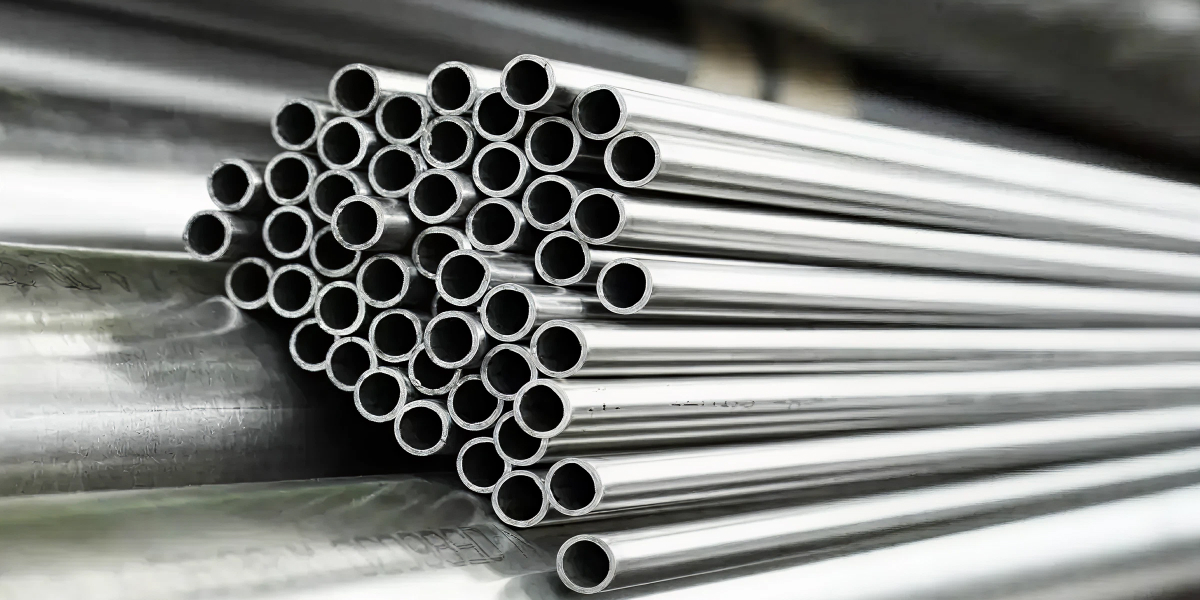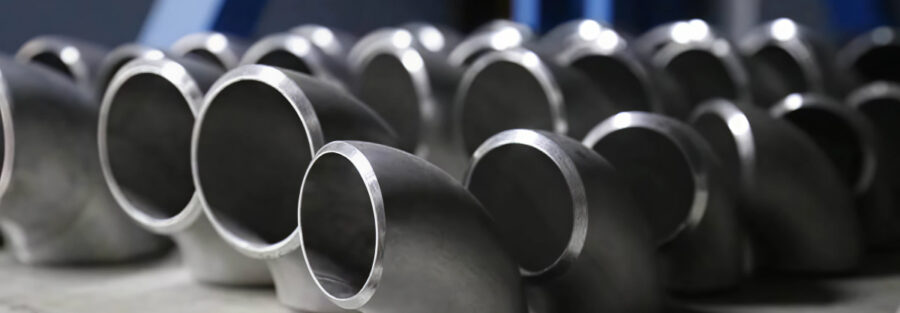In high-temperature industries like power generation, chemical processing, and aerospace, standard metal fittings can warp, corrode, or crack under extreme stress. That’s where Inconel 600 pipe fittings come in — engineered specifically to endure intense heat, pressure, and chemical exposure without compromising performance.
Made from a nickel-chromium-iron alloy known as Inconel 600, these pipe fittings are widely trusted for their ability to retain strength and resist scaling even at temperatures exceeding 1000°C. In this post, we’ll explore how Inconel alloy 600 works in high-heat applications, the types of fittings available, and why they’re preferred over traditional materials.
What is Inconel 600?
Inconel 600 is a high-performance, solid-solution-strengthened nickel alloy designed for service in extreme environments. With a typical composition of approximately 72% nickel, 14-17% chromium, and 6-10% iron, Inconel alloy 600 exhibits excellent mechanical properties and exceptional resistance to heat and corrosion.
Its oxidation resistance, even in high-velocity combustion environments, makes it ideal for furnace components, nuclear reactor parts, and chemical processing systems. Additionally, its ability to resist chloride-ion stress-corrosion cracking offers advantages in marine and saltwater applications.

How Inconel 600 Pipe Fittings Withstand High Temperatures
Unlike stainless steel or carbon steel, Inconel 600 maintains its structural integrity at elevated temperatures. Here’s how:
- Thermal Stability: Inconel 600 pipe fittings resist thermal expansion and distortion even after prolonged exposure to temperatures above 1000°C.
- Oxidation Resistance: Thanks to the chromium content, the alloy forms a protective oxide layer that prevents scaling and degradation.
- High Nickel Content: Nickel contributes to excellent strength retention and resistance to carburization and chloride stress-corrosion cracking.
- Low Magnetic Permeability: Inconel 600 remains non-magnetic under most conditions, making it useful in sensitive electronic and instrumentation applications.
These characteristics make Inconel 600 an optimal choice for fittings that must endure constant thermal cycling and harsh environmental conditions.
Common Inconel Fittings for High-Heat Use
Inconel fittings are available in various configurations to suit industrial piping systems:
- Inconel 600 Pipe Fittings: These include elbows, tees, reducers, couplings, and caps designed for high-stress environments.
- Inconel 625 Elbow vs. Inconel 600 Elbow: While both are heat-resistant, Inconel 625 contains added molybdenum for superior corrosion resistance, making it suitable for more aggressive environments.
- Custom Inconel Fittings: Fabricators often produce bespoke solutions for specialized needs, such as high-pressure or vacuum systems.
Moreover, these fittings are designed to meet stringent codes and standards, including ASME B16.9 and ASTM B366, ensuring consistent quality and compatibility.
Industries That Rely on Inconel 600 Fittings
Several sectors benefit from Inconel 600’s excellent resistance to corrosion and high temperature strength.
- Power Generation: Used in steam generators, heat exchangers, and boiler components.
- Petrochemical and Refineries: Ideal for systems carrying high-temperature or corrosive fluids.
- Aerospace: Found in jet engine exhaust systems and turbine components.
- Heat Treating Equipment: Utilized in furnace hardware, thermocouple protection tubes, and retorts.
- Nuclear Industry: Deployed in reactor cores and steam generator tubing due to its stability under radiation and heat.
Benefits of Using Inconel 600 Over Stainless Steel
- Superior Heat Tolerance: Retains mechanical strength where stainless steel may weaken.
- Corrosion Resistance: Performs well in acidic, alkaline, and chloride-rich environments.
- Durability: Reduces downtime and replacement frequency.
- Safety: Less prone to sudden failure under stress.
- Versatility: Can be used in both oxidizing and reducing atmospheres.
This makes Inconel 600 fittings a long-term investment for high-value infrastructure with excellent corrosion resistance where reliability is crucial.
Key Considerations When Choosing Inconel Fittings
Before selecting Inconel fittings, consider the excellent resistance to corrosion and high temperature strength that nickel alloys offer.
- Pressure and Temperature Ratings: Ensure compatibility with your system’s specifications.
- Fabrication Techniques: Inconel can be welded, but requires expertise to avoid cracking.
- Certifications: Look for fittings that meet ASTM B366 or other relevant international standards.
- Supplier Reputation: Source from certified vendors with proven track records in high-performance alloys.
- Service Conditions: Match the specific grade (e.g., Inconel 600 vs. Inconel 625) to the chemical and thermal exposure your system encounters.
Conclusion
Inconel 600 pipe fittings offer a reliable, high-performance solution for extreme heat environments. Their unique blend of thermal and chemical resistance makes them indispensable across industries that demand safety, longevity, and efficiency. Whether you’re in aerospace, petrochemical, or energy production, choosing the right Inconel fittings can dramatically enhance operational reliability and performance.
By investing in Inconel 600 pipe fittings, industries can reduce long-term maintenance costs, improve safety, and ensure continuous operation in some of the world’s harshest conditions. With increasing demands on materials due to higher operating temperatures and environmental standards, Inconel continues to stand out as a trusted material in advanced engineering applications.
FAQs About Inconel 600 Pipe Fittings
Inconel 600 can tolerate temperatures up to 1093°C (2000°F) without losing its mechanical properties. This makes it suitable for extreme heat applications like furnace hardware and exhaust systems.
Yes, Inconel 600 offers excellent resistance to a wide range of acidic and alkaline media, including sulfuric acid, nitric acid, and caustic soda. This makes it a preferred material for chemical processing industries.
While both alloys perform well in high-heat conditions, Inconel 625 has higher molybdenum content, offering better resistance to pitting and crevice corrosion. Inconel 600 is generally used in less aggressive but equally high-temperature environments.

